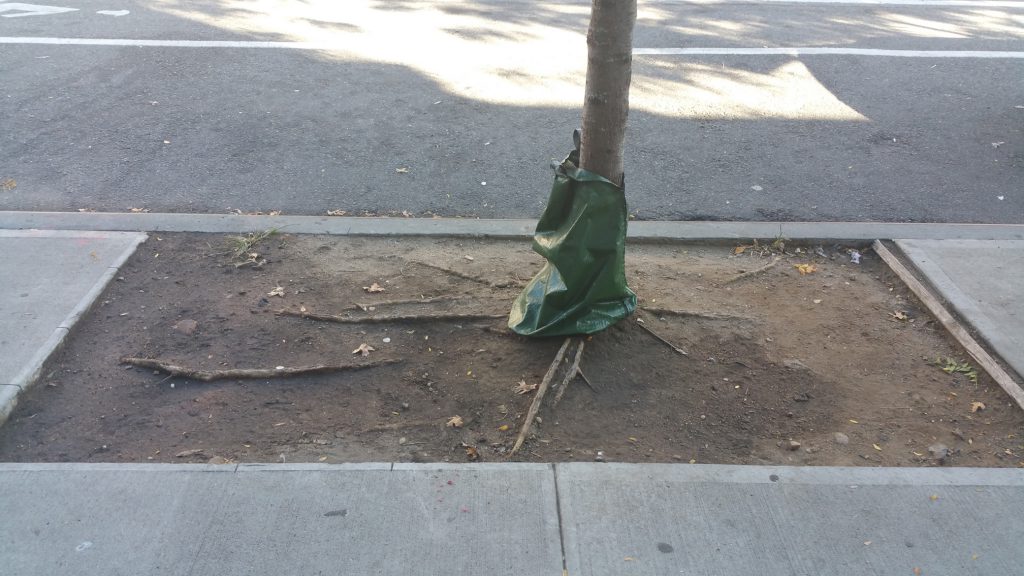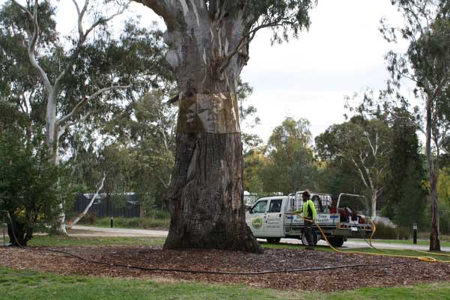Bioremediation
Urban Environments are far from healthy sustainable ecosystems. Whether we acknowledge it or not bioremediation is an essential component and advent of Urban Forestry. To successfully grow a forest in a city Bioremediation must be embraced.
Healthy soil = Healthy Trees….. Healthy Trees = Healthy Forests.

What is Bioremediation?
Bioremediation, in the way G.U.F delivers it, is about focusing on beneficial microorganisms, their relationship to the circle of life and applying this knowledge to build a healthy growing system. Microorganisms, many of which have the capacity to impact molecules, can change the chemical molecular structure of toxins and soil alike. This molecule changing capacity has been demonstrated in research and practice to clean up oil spills and toxic soil conditions using a series of microbial applications. Bioremediation techniques provide huge benefits to degraded urban soils caused through poor landscape management, construction damage and over use of horticultural chemicals. Harnessing the natural capacity of the smallest life forms is fundamental to successful outcomes when using Bioremediation techniques.

Bioremediation can emulate or mimic and even accelerate the natural process of soil health and plant function/production.
Bioremediation is a method of biological restoration and maintenance of soil to sustainably increase plant health for an urban plant, tree or forest.
Bioremediation is about understanding the relationship between soil biology (the soil biological network), soil chemistry, soil structure and plant roots.
Bioremediation can improve plant immune systems, soil health and function during normal and adverse conditions.
Bioremediation is about building biologically diverse naturally beneficial soil life to remediate toxic and highly polluted or stressed growing mediums under a host of extraneous conditions.

Contact Us
Send Global Urban Forest a message

















